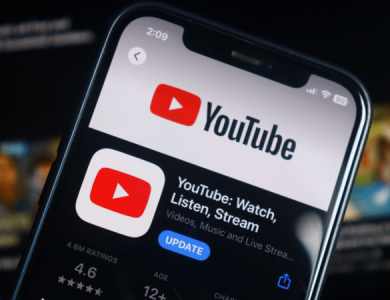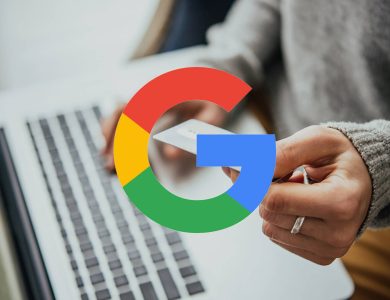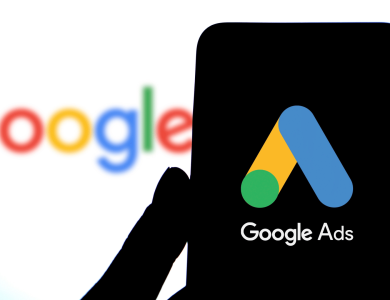
As SEO professionals, we often encounter unusual rankings in the search engine results pages:
Why is Reddit showing up for a purely commercial keyword that typically brings up ecommerce sites?
Why is an article from The Verge ranking so high despite being spammy, sarcastic, and seemingly AI-generated, filled with keywords like "best printer 2024"?
The Verge article performed well when it was first released in April 2024, but its ranking began to decline by mid-May. It’s still ranked highly, puzzling me 🤷, but at least now it’s clear it might not deserve a top 10 spot (or does it?).
People often cling to outdated ideas about how Google ranks pages. We rely on old methods because they’re familiar, even when we don’t completely understand Google’s current system.
For example, we still prioritize keywords as a crucial ranking factor. But do they really matter as much as we assume? If they don’t, what should we prioritize instead?
‘Best printer 2024’: What’s ranking?
The types of content in the top 10 results for "best printer 2024" are intriguing. There are three user-generated content (UGC) links in the top 10.
Apart from this, other results include publishers with listicles. No ecommerce outlets, even major ones like Amazon, appear in the results.
Why is this ranking on Google?
If you’re wondering why a URL you think shouldn’t be on Page 1 is ranked highly, it could be because your understanding of what contributes to ranking is out of date.
Here are several reasons—or ranking signals, if you wish—that I believe are significant today.
1. Authority
Google tends to favor established brands. Whether we agree with it or not, well-known brands often have a better chance of securing higher rankings in search results compared to lesser-known sites.
Some attributes commonly associated with authoritative and well-branded websites in search results include:
- Well-known brands tend to see users more likely to click and trust their URLs when they appear in the search results, resulting in better click-through rates (CTR).
- Websites naturally cited or linked to by other relevant sites. Yes, backlinks still matter.
- Websites with a presence on social media.
- Websites recognized as entities in search results and holding their own knowledge panel.
- Secure websites with a clear purpose and transparent editorial, shipping, and return policies, as well as proper legal, privacy pages, and details about their team and content authors/reviewers. Although the importance of E-E-A-T varies by niche, applying best practices is beneficial.
Takeaway
Brand prominence matters, and SEO is no longer a standalone marketing channel. As SEO specialists, we should collaborate with other marketing functions to identify opportunities to build a robust brand in search results.
2. User behavior
Some in the SEO community are hesitant to focus on user behavior since there aren’t clear tactics to improve it.
It can be easier to stick with familiar methods, even if they’re outdated, rather than explore new, uncertain avenues.
Google now uses “user interaction” data in its rankings, as stated in a Google document from the antitrust trial: “This dialogue is the source of magic.”
We also know from leaks from the Google Data Warehouse API about metrics like "goodClicks," "badClicks," "lastLongestClicks," etc.
The DOJ testimony also revealed NavBoost and Glue as core ranking signals tied to user behavior in search results.
Furthermore, it appears Google uses Chrome browser clickstream data for ranking.
Takeaway
All these point towards a singular conclusion: user behavior is critically important.
As SEO specialists, we should utilize tools like Hotjar and Lucky Orange to analyze user behavior on a page. These insights help test ideas to enhance user experience and boost rankings. Additionally, experimenting with click-through rates (CTR) is vital for SEO.
3. Machine learning
To understand this, take a look at a 2013 Facebook study.
“A study by Cambridge University in collaboration with Microsoft demonstrated that using publicly available Like data could accurately predict personal attributes—the most surprising being an apparent link between liking ‘Curly Fries’ and having a high IQ.”
How does this make sense? It doesn’t. This is a pattern the machine identified.
For some reason, people with higher IQs liked photos of “curly fries” on Facebook, and a machine learning algorithm picked up on that pattern.
Machine learning in search might also identify patterns that might not make sense to us but do resonate from a machine’s perspective.
For example, a page with blue buttons might appeal more to users. (This is merely an example to illustrate the concept; it is not based on actual research.)
Takeaway
While there’s limited action to take in this "man versus machine" battle, analyzing and identifying patterns on pages might help.
While there are not many practical tips for SEOs here, it provides insight into why certain things rank.
4. User intent
Arguably, user intent is the most important ranking signal under our control.
Lately, I’ve noticed Reddit and blogs showing up frequently in the search results for what we believed were purely commercial or transactional keywords.
Here’s an example of a New York Times article ranked at Position 5 for the keyword "school bags."
Takeaway
Analyze search intent and ensure your pages address different intents.
If there are blogs in the SERPs you’re targeting, your content should have more information even if it’s a product category page.
You can create a supporting blog without fearing content cannibalization if that’s what users seek.
If user-generated content (UGC) is in the results, consider including reviews on your pages or enabling comments for blogs, for instance. There is no one-size-fits-all solution.
My advice? Continuously test.
5. Bugs and tests
Numerous elements influence Google rankings. At times, it’s a bug from Google’s end, and they will address it.
For instance, Google confirmed a search ranking bug on August 16 that remained unresolved until August 20.
The Verge article that initially ranked high saw its position fall after less than two months.
This illustrates that high rankings aren’t always permanent; Google is likely testing the URL and gathering user data.
Takeaway
We should not rush to conclusions upon witnessing ranking movements. Patience and observation are needed before forming any verdict or ranking theory.
Decoding Google’s Unexpected Search Results
SEO involves much more than initially meets the eye.
Today’s SEO transcends keywords and traditional tactics.
We need to be open to adopting more creative approaches.
The times in search are evolving, and we need to adapt.
Let’s embrace the dawn of “new SEO.”



